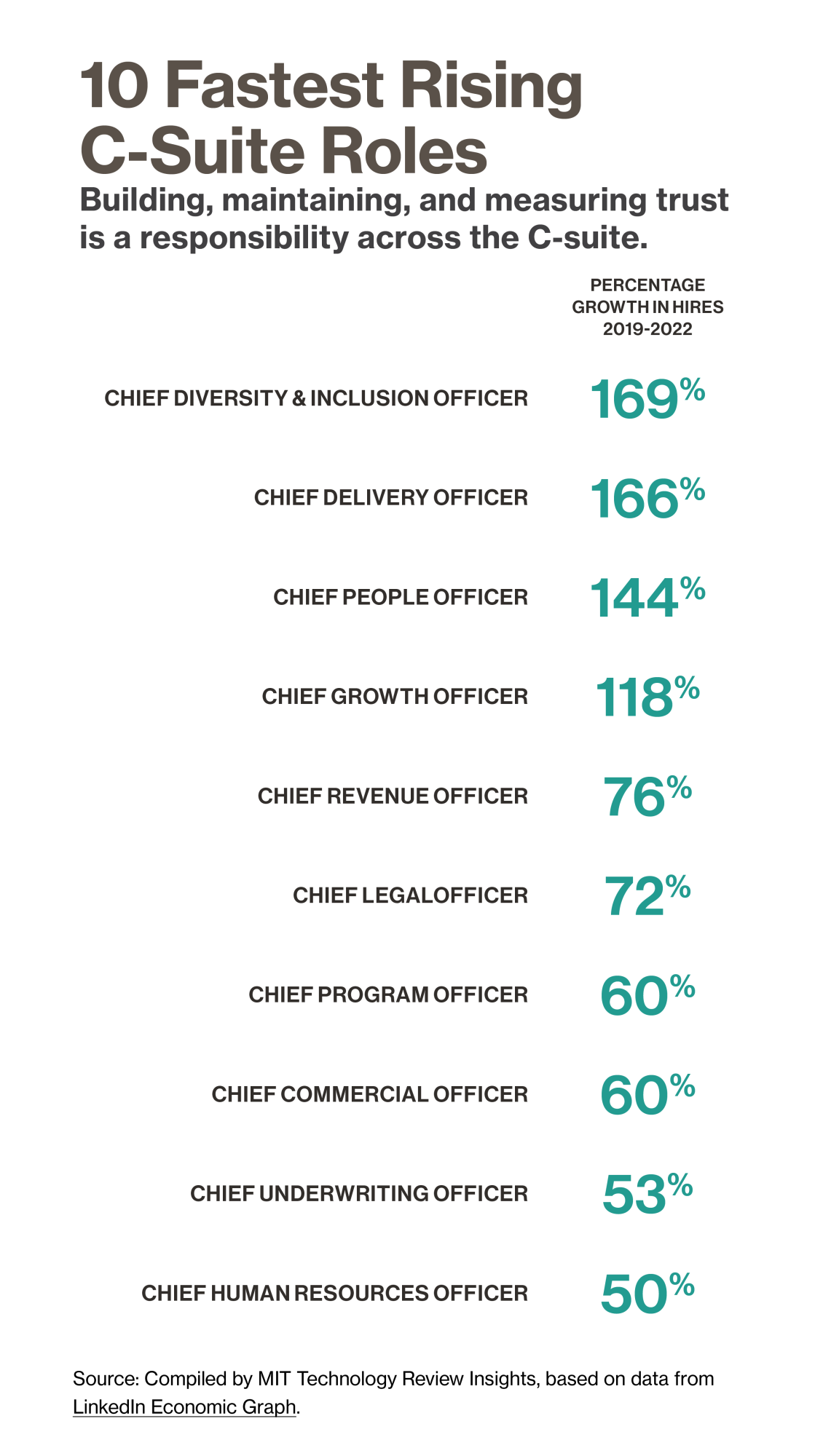
Introducing the chief trust officer
“Trust is a clear competitive differentiator,” says Elena Kvochko, the first chief trust officer to be appointed at software company SAP. “Having a recognized awareness that this is an important function and this is an important direction for the company—it was critical for our success.”
Even as more organizations recognize the impact of trust on employee engagement, customer loyalty, and financial performance, only 19% of organizations have a C-suite leader dedicated to trust-building.

In the past, the need for a C-suite leader focused on trust has not been as acute, says Michael Bondar, Deloitte’s global Enterprise Trust leader. However, a Deloitte global survey of board directors and C-suite executives reveals that although 82% of respondents say the CEO is ultimately responsible for trust leadership, just 39% categorize their organization as achieving high trust maturity. Focused leadership could increase that percentage, says Bondar, who is also a principal of Deloitte’s Transactions & Business Analytics LLP.
“The polarization of media, geopolitical uncertainty, the pace of digital transformation, the increasing expectations of stakeholders, the scrutiny of data, climate change, and a recessionary environment make trust a top-of-mind issue for executives,” he explains.
Enter the chief trust officer (CTrO). As more business functions seek to demonstrate trust, the CTrO has emerged as a strategic leader to help build trust across the organization and partner ecosystems.
This content was produced by Insights, the custom content arm of MIT Technology Review. It was not written by MIT Technology Review’s editorial staff.

